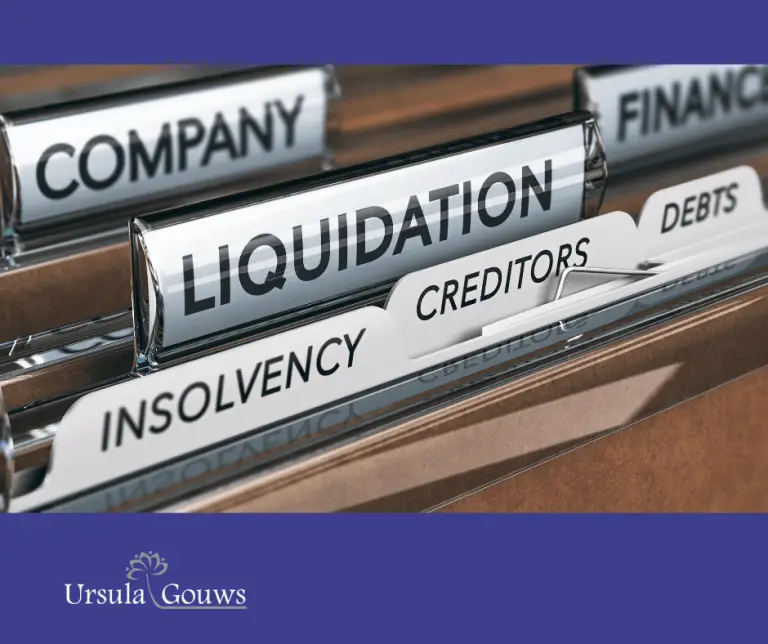Are you struggling to cope with the emotional impact of Sequestration?
Have crippling debt and financial pressures been weighing on your shoulders for what feels like an eternity? You are not alone. Many people have had their lives impacted by Sequestration, both emotionally and financially.
From feelings of despair to a constant sense of dread, it is easy to understand why many people become overwhelmed.
Facing Sequestration can be frightening and challenging to navigate.
But there are creative strategies that can help you manage this difficult period in your life.
In this blog post, we will talk about how it is critical to recognize your own emotional needs.
When under such pressure and while conquering the difficult situations associated with Sequestration in the current modern economy.
The Stress and Anxiety of Sequestration
Going through Sequestration is a stressful and often difficult situation. It is expected to feel overwhelmed and anxious as you work through the process.
And it is easy to get caught up in fear of failure.
However, it is important to remember that failure does not always have to be seen in a negative light.
It can be beneficial to take a step back and look at all the opportunities that may come from this experience.
You may find yourself in a new career or taking steps toward new goals you did not have the courage or motivation to pursue.
Even if you don’t come out of this scenario with any tangible gain.
The change in perspective can help you with accepting and overcoming the emotional impact of Sequestration.
Additionally, there are various techniques you can use to manage stress and anxiety.
Such as meditation, healthy eating habits, and exercise.
Talk with professionals or people close to you who can support you throughout this tough time.
With practice and dedication, these tips can help you better cope with the emotional impact of Sequestration now and in the future.
Seeing Sequestration as a Learning Opportunity
Sequestration can seem like a roadblock in your financial journey. But, it can also be seen as an opportunity for personal growth and learning.
Look at the process more as a lesson in resilience and mastering your finances rather than failure.
When faced with challenges, it is easy to focus on the negatives. But during such a trying time, it is important to remind yourself that you are resilient and that you will get through this.
Try to shift your perspective of failure being bad. Instead, see it as an opportunity to learn something new, like how to become debt-free in the future.
Taking the time to reflect on past decisions and developing a plan for financial health can help you feel more empowered rather than defeated.
Looking at the Sequestration process from a different angle, it can be viewed positively as an opportunity for personal growth and improvement rather than another reason for despair.
With proper guidance from a Sequestration Coach, you can put this setback in the past and move forward with newfound knowledge about personal finance and debt management that will benefit your future endeavors.
Strategies for Cope With Fear and Failure
When facing the emotional impact of Sequestration, it can be easy to feel overwhelmed and succumb to feelings of failure.
However, it is essential to remember that failure isn’t always bad. With the right mindset, you can use failure as an opportunity for personal growth and development.
Here are a few strategies for coping with fear and failure:
Learning from Your Mistakes
No one is perfect, and making mistakes is part of the learning process.
Instead of dwelling on your mistakes, focus on how you can learn from them. Identify what went wrong and identify constructive ways to avoid similar problems in the future.
Taking an analytical approach can help you reduce fear and take control of your life.
Reframing Your Thinking
The power of positive thinking cannot be underestimated when it comes to managing difficult emotions.
It is important to recognize that failures are not permanent.
And everyone endures them at some point in their lives. Focus on ways that you can strive towards self-improvement while accepting setbacks as part of your journey.
Finding Support
Another way to cope with the emotional impact of Sequestration is by building a strong support system around yourself through friends, family, and professionals who understand what you are going through.
Lean on these people for advice and reassurance during times of uncertainty or doubt.
They often offer perspectives that can help you manage stressful situations more effectively.
Coping With Stress Through Self-Care
Sequestration is a difficult and emotional process, and understanding how to cope with the resulting stress is important.
When faced with this difficult situation, it can be hard to break free from the “failure” mindset and see things in a less negative light.
One of the best ways to do this is to focus on self-care.
Taking time for yourself to relax and focus on what brings you joy can positively impact your well-being.
This could be something as simple as taking a long walk outdoors, reading for pleasure, or spending time with friends and family.
Here are some other self-care tips you can follow:
- Make sure you get enough sleep.
- Fatigue can make it even harder to cope with your emotions.
- Exercise.
- Regular physical activity will help you feel better, mentally and physically.
- Eat healthy meals.
- Fuel your body with wholesome food that will give you energy.
- Find an outlet.
- Try writing down how you’re feeling in a personal journal or talking it out with someone close to you.
- Take breaks throughout the day.
- Take some time away from work or studying to give yourself space to relax and recharge.
Self-care is the key to managing stress in tough times like these.
So remember that it is all about being compassionate with yourself and not beating yourself up for not being able to stop all your worries immediately.
Leveraging Your Support Network for Emotional Well-being
When you are going through something as emotionally taxing as Sequestration, it is not easy to manage everything on your own.
That is why leveraging your support network is critical to help you cope with the emotional impact of Sequestration.
Your support network can include family, friends, colleagues, mentors, and even acquaintances who can offer emotional and practical advice to help you through the process.
Having a conversation with a good listener can help relieve some of your stress and anxieties while being around people who share similar experiences, which offers another level of understanding that can be comforting.
Even if you don’t have a lot of people in your life or don’t want to burden them with your problems.
Plenty of anonymous outlets are available, such as websites and forums dedicated to helping those going through financial hardship.
Regardless of your situation, remember that having a strong support system will be essential in helping you get through this difficult time.
Moving Forward After Sequestration
Now that you understand failure is not always bad. But instead, it can be an opportunity for growth and a time to move forward.
It can be overwhelming to make a plan of action, but breaking things down into smaller steps can make the process easier.
Here are a few tips to help you take action:
Reach out for help.
Don’t be afraid to ask for help from friends, family, or even financial professionals who can guide you in dealing with debt management and other sequestration-related issues.
Take responsibility for your choices.
- Face your mistakes head-on and own up to them as this grows character, resilience, and self-reliance.
Reorganize your finances and prioritize your expenses.
- Making a budget helps you spend within your means and set aside money for essential bills as well as funds for unexpected expenses.
Find ways to reduce stress levels.
- Engaging in activities such as yoga or meditation that promote relaxation, physical health, and emotional stability
By taking ownership of the situation and exploring new perspectives on failure, you can cope with the emotional impact of Sequestration in a positive way that sets you on the path to long-term financial stability.
Conclusion
The emotional impact of Sequestration can be daunting, and sometimes feel hopeless, but it does not have to be.
By viewing failure as an opportunity to learn, grow, and rebuild instead of a negative thing, you can begin to cope with the emotional impact of Sequestration.
Remember that it is your right to access the right help, advice, and tools to help you cope and become stronger and wiser.
Take this time to focus on yourself and use your newfound perspective on failure to get back on the path to success and the financial stability you so desperately need.
This blog was brought to you by Ursula Gouws.
This blog is for information purposes only and does not constitute legal or financial advice.
If you enjoyed this blog, check out more Debt Talk with Ursula on the Ursula Gouws Consulting Blog, or download our Freebies to help you on your journey to a new financial future.
I am a Debt Strategist. Let me help you find the ideal legal solution for your unique debt situation.
I understand that dealing with financial distress can bring about feelings of guilt and shame, and even depression.
Rest assured – working together, we will get you back on track, so your finances and dignity are fully restored.
If you need help finding the ideal legal solution for your debt, feel free to reach out with the contact form on my Website.







